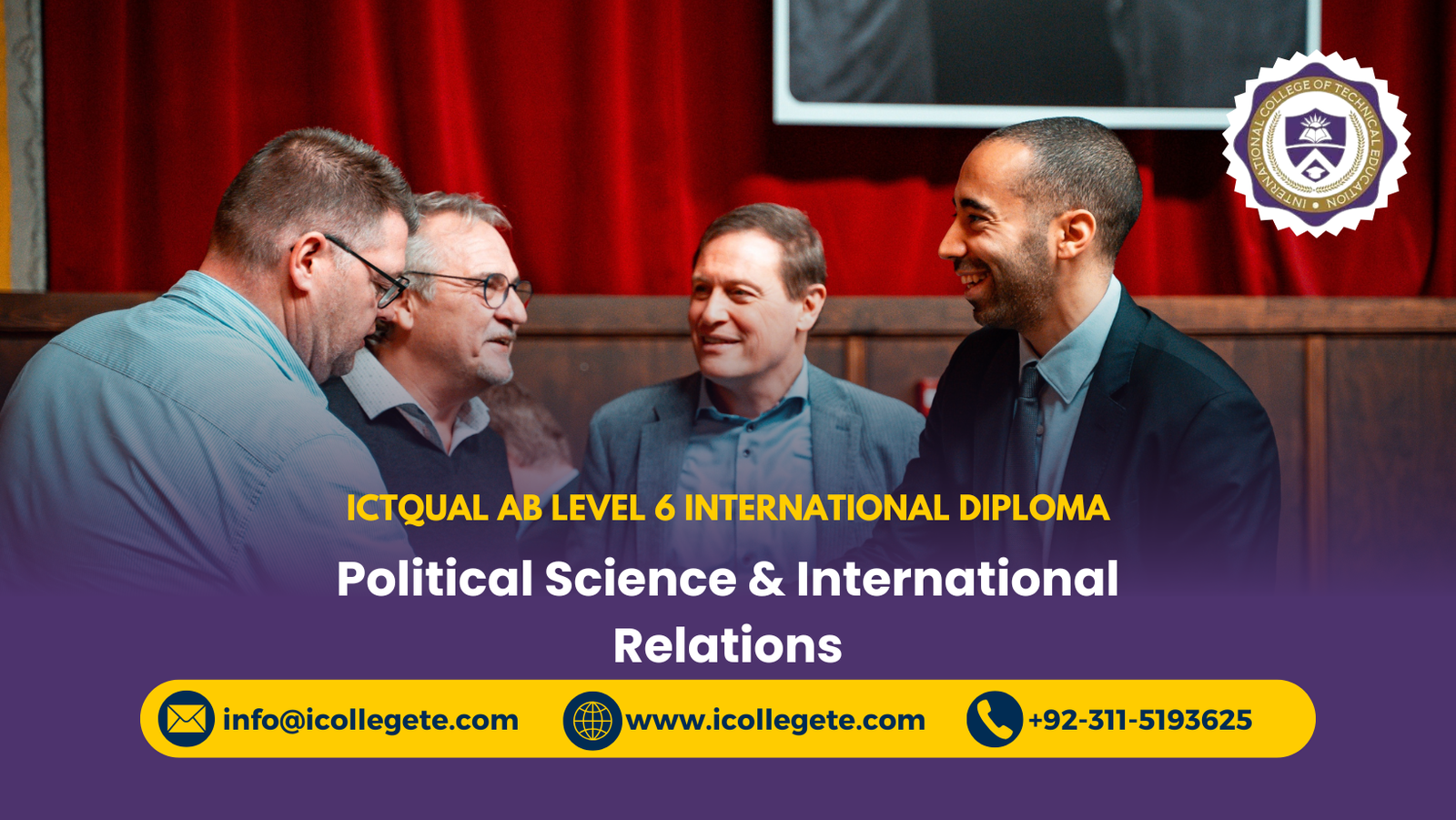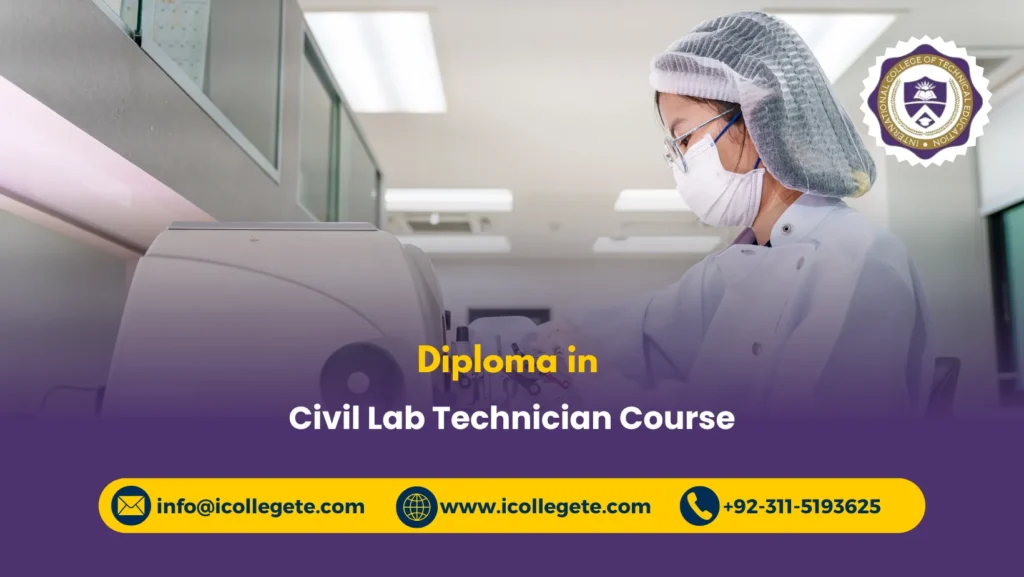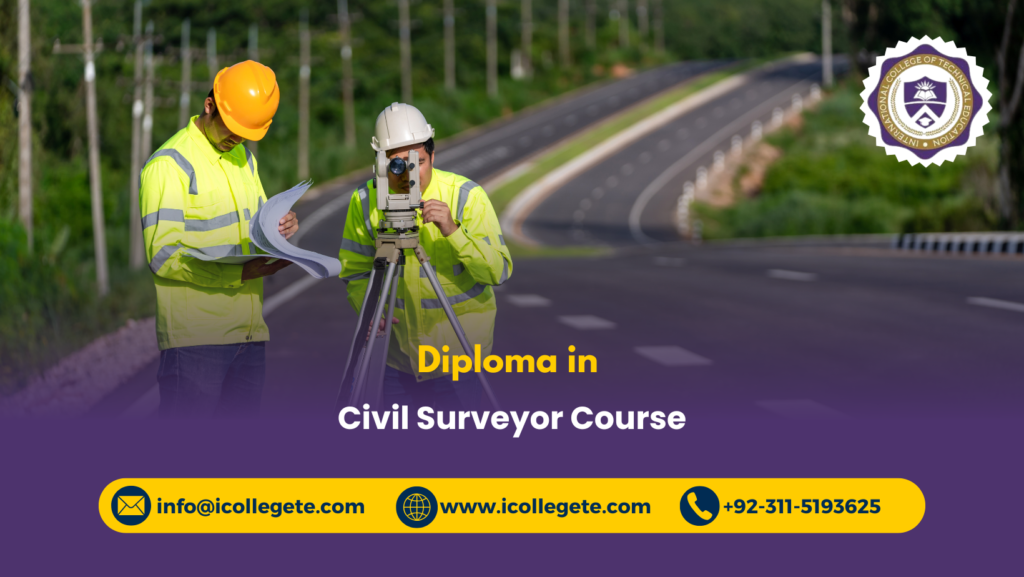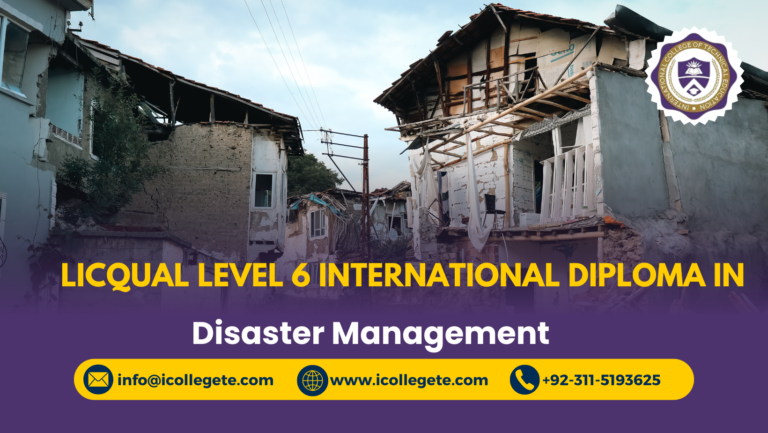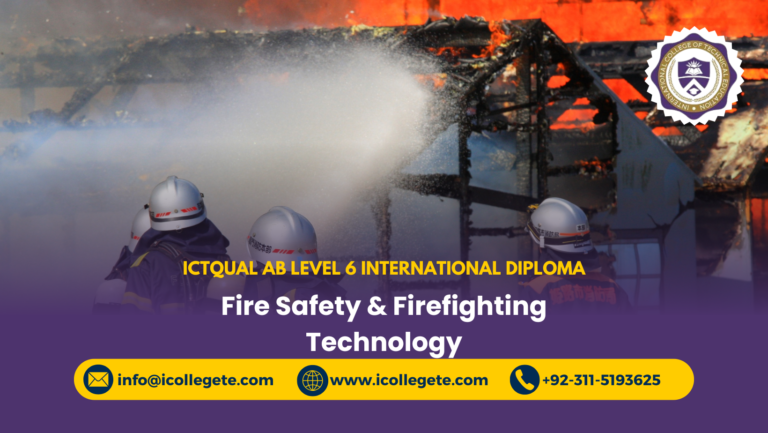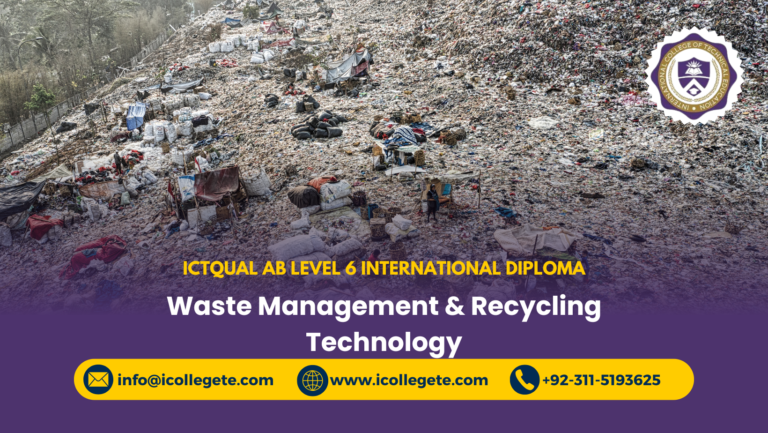The ICTQual AB Level 6 International Diploma in Political Science & International Relations is a dynamic three‑year program designed for learners who want to gain advanced expertise in political systems, governance, and global affairs. ICTQual AB Level 6 International Diploma in Political Science & International Relations qualification provides a strong academic and professional foundation for those seeking impactful careers in politics, diplomacy, policy analysis, and international development.
Structured into 36 comprehensive study units, the ICTQual AB Level 6 International Diploma in Political Science & International Relations combines theoretical knowledge with practical applications, ensuring graduates develop both analytical and strategic skills. Learners will explore key areas such as political theory, comparative politics, global governance, diplomacy, foreign policy, and international law. The ICTQual AB Level 6 International Diploma in Political Science & International Relations also emphasizes applied fields like conflict resolution, policy‑making, and global security, preparing students to critically evaluate political developments and international relations in real‑world contexts.
Delivered fully online over three years, the course offers flexibility for both fresh graduates and working professionals who wish to balance study with career and personal commitments. Its global recognition makes ICTQual AB Level 6 International Diploma in Political Science & International Relations an excellent choice for individuals aiming to expand their opportunities in government institutions, NGOs, think tanks, multinational organizations, and international agencies.
Year 1 – Foundation in Political Science & International Relations
- Introduction to Political Science
- Foundations of International Relations
- Comparative Politics and Government Systems
- Political Ideologies and Theories
- History of Political Thought
- Principles of Public Administration
- Introduction to International Organisations
- Global History and World Politics
- Political Communication and Media Studies
- Research Methods in Political Science
- Human Rights and Social Justice
- Introduction to Diplomacy and Foreign Policy
Year 2 – Intermediate Political Science & International Relations
- Advanced Political Theory and Analysis
- International Law and Global Governance
- Political Economy and Development Studies
- Regional Studies: Europe, Asia, Africa, and the Middle East
- Conflict Resolution and Peace Studies
- Political Sociology and Social Movements
- Policy-Making and Public Policy Analysis
- International Political Economy
- Comparative Foreign Policy
- Security Studies and Global Challenges
- Research Methods and Data Analysis in Politics
- Ethics and Professional Practice in Political Science
Year 3 – Advanced Political Science & International Relations
- Contemporary Issues in International Relations
- Strategic Studies and National Security
- International Diplomacy and Negotiation
- Policy Analysis and Political Reform
- Globalisation and Transnational Politics
- Leadership and Governance in Political Institutions
- International Conflict and Crisis Management
- Political Risk Analysis and Strategic Decision-Making
- Environmental Politics and Global Sustainability
- International Cooperation and Development Projects
- Innovation and Emerging Trends in Global Politics
- Capstone Project in Political Science & International Relations
Year 1 – Foundation in Political Science & International Relations
Introduction to Political Science
- Understand the scope, nature, and functions of political science.
- Explain the role of politics in governance and society.
- Identify major branches and approaches in political science.
- Apply basic political concepts to real-world contexts.
Foundations of International Relations
- Recognise the origins and key theories of international relations.
- Explain how states interact within the global system.
- Analyse the role of power and cooperation in international politics.
- Apply theories to assess global political events.
Comparative Politics and Government Systems
- Compare political systems and structures across nations.
- Evaluate the role of constitutions, legislatures, and executives.
- Examine different forms of democracy and authoritarianism.
- Interpret global case studies of governance models.
Political Ideologies and Theories
- Define core political ideologies and their historical roots.
- Distinguish between liberalism, conservatism, socialism, and others.
- Analyse the impact of ideologies on policy and society.
- Critically evaluate ideological influence in global politics.
History of Political Thought
- Identify classical thinkers and their contributions to political ideas.
- Explain the evolution of Western and non-Western political thought.
- Assess how historical ideas influence modern governance.
- Apply political philosophy to current debates.
Principles of Public Administration
- Understand the scope and purpose of public administration.
- Identify key functions of government institutions.
- Examine accountability, transparency, and efficiency in administration.
- Apply principles of management to public service delivery.
Introduction to International Organisations
- Describe the history and structure of international organisations.
- Explain the functions of the UN, WTO, IMF, and regional bodies.
- Analyse the impact of multilateral cooperation.
- Evaluate the role of international organisations in conflict and peace.
Global History and World Politics
- Trace the historical foundations of modern world politics.
- Explain the impact of colonialism, wars, and revolutions.
- Assess the role of historical events in shaping global order.
- Apply historical analysis to contemporary issues.
Political Communication and Media Studies
- Understand the role of media in shaping political opinion.
- Analyse political campaigns, propaganda, and digital media.
- Evaluate ethical challenges in political communication.
- Apply communication strategies in a political context.
Research Methods in Political Science
- Identify qualitative and quantitative research approaches.
- Develop skills in data collection and analysis.
- Formulate research questions and hypotheses.
- Apply research methods to political studies.
Human Rights and Social Justice
- Understand the principles of universal human rights.
- Analyse global human rights instruments and policies.
- Evaluate social justice challenges across societies.
- Apply human rights frameworks to case studies.
Introduction to Diplomacy and Foreign Policy
- Understand the role and principles of diplomacy.
- Explain the processes of foreign policy formulation.
- Analyse diplomatic tools, strategies, and negotiations.
- Apply concepts to real-world diplomatic case studies.
Year 2 – Intermediate Political Science & International Relations
Advanced Political Theory and Analysis
- Evaluate modern and post-modern approaches to politics.
- Analyse theories of justice, equality, and liberty.
- Compare classical and contemporary political thought.
- Apply advanced theories to political decision-making.
International Law and Global Governance
- Explain the nature and sources of international law.
- Analyse the role of treaties, conventions, and courts.
- Evaluate global governance structures in law enforcement.
- Apply legal principles to global disputes.
Political Economy and Development Studies
- Understand the relationship between politics and economics.
- Analyse development theories and strategies.
- Assess the role of institutions in economic growth.
- Apply political economy concepts to case studies.
Regional Studies: Europe, Asia, Africa, and the Middle East
- Understand the political systems of key world regions.
- Analyse historical and cultural factors shaping governance.
- Evaluate regional organisations and alliances.
- Apply comparative analysis to regional issues.
Conflict Resolution and Peace Studies
- Understand the causes and dynamics of conflict.
- Analyse peacebuilding strategies and conflict mediation.
- Evaluate the effectiveness of peacekeeping operations.
- Apply conflict resolution tools to case studies.
Political Sociology and Social Movements
- Explain the relationship between politics and society.
- Analyse social movements and collective action.
- Evaluate the role of identity and culture in politics.
- Apply sociological theories to political behaviour.
Policy-Making and Public Policy Analysis
- Understand the stages of the policy-making process.
- Analyse policy tools and frameworks.
- Evaluate the effectiveness of public policies.
- Apply policy analysis methods to real-world issues.
International Political Economy
- Explain theories of global trade and finance.
- Analyse the impact of globalisation on economies.
- Evaluate international economic institutions.
- Apply concepts to global economic case studies.
Comparative Foreign Policy
- Compare foreign policies of major powers.
- Analyse national interests and decision-making factors.
- Evaluate the impact of ideology on foreign policy.
- Apply frameworks to assess international relations.
Security Studies and Global Challenges
- Understand the concept of national and global security.
- Analyse threats including terrorism, cybercrime, and WMDs.
- Evaluate the role of security organisations.
- Apply security theories to case studies.
Research Methods and Data Analysis in Politics
- Understand advanced data analysis techniques.
- Apply statistical methods to political studies.
- Develop evidence-based political arguments.
- Interpret data to support research findings.
Ethics and Professional Practice in Political Science
- Recognise ethical dilemmas in political practice.
- Apply ethical frameworks to decision-making.
- Evaluate professional standards in political research.
- Promote accountability and integrity in practice.
Year 3 – Advanced Political Science & International Relations
Contemporary Issues in International Relations
- Identify key global issues such as migration, climate, and security.
- Analyse their political, social, and economic implications.
- Evaluate international responses and solutions.
- Apply critical thinking to global issues.
Strategic Studies and National Security
- Understand theories of strategy and security policy.
- Analyse defence policies and military strategies.
- Evaluate security challenges in global politics.
- Apply strategic frameworks to national contexts.
International Diplomacy and Negotiation
- Master principles of negotiation and mediation.
- Analyse case studies of successful and failed diplomacy.
- Evaluate strategies used in international negotiations.
- Apply diplomatic skills in simulated scenarios.
Policy Analysis and Political Reform
- Understand tools of policy analysis and evaluation.
- Analyse the impact of political reforms on governance.
- Evaluate reforms in democratic and non-democratic systems.
- Apply policy analysis to propose recommendations.
Globalisation and Transnational Politics
- Explain the dynamics of globalisation.
- Analyse the role of transnational actors and NGOs.
- Evaluate challenges posed by global interdependence.
- Apply theories to globalisation case studies.
Leadership and Governance in Political Institutions
- Understand leadership theories in political contexts.
- Analyse governance models across institutions.
- Evaluate qualities of effective political leadership.
- Apply leadership strategies in political settings.
International Conflict and Crisis Management
- Understand causes and consequences of global conflicts.
- Analyse crisis management frameworks.
- Evaluate peacebuilding and post-conflict recovery.
- Apply crisis management strategies to real cases.
Political Risk Analysis and Strategic Decision-Making
- Understand concepts of political risk.
- Analyse risks in global investment and trade.
- Evaluate tools for risk assessment.
- Apply risk analysis to international scenarios.
Environmental Politics and Global Sustainability
- Understand global environmental challenges.
- Analyse international agreements on climate change.
- Evaluate sustainable development strategies.
- Apply frameworks to environmental case studies.
International Cooperation and Development Projects
- Explain principles of international cooperation.
- Analyse the role of aid and development projects.
- Evaluate the success of international partnerships.
- Apply project planning tools to development initiatives.
Innovation and Emerging Trends in Global Politics
- Identify new trends in global politics.
- Analyse the impact of technology and digital governance.
- Evaluate the role of innovation in political change.
- Apply foresight methods to anticipate future trends.
Capstone Project in Political Science & International Relations
- Design and implement an independent research project.
- Apply theories and methods learned throughout the programme.
- Analyse complex political and international issues.
- Present findings in a professional and academic format.
Academic and Knowledge Development
- Gain a globally recognized Level 6 qualification in Political Science & International Relations
- Build advanced knowledge of political theory, comparative politics, diplomacy, and global governance
- Develop strong analytical and research skills to evaluate policies and international issues
- Strengthen your academic profile for further professional diplomas and certifications
Career Growth and Employability
- Open career pathways in government institutions, NGOs, think tanks, and international organizations
- Qualify for roles such as Policy Analyst, Diplomatic Officer, Political Advisor, or International Relations Specialist
- Enhance employability in public administration, foreign affairs, and global development agencies
- Gain practical skills that employers value, including negotiation, policy evaluation, and strategic communication
Practical and Professional Skills
- Learn to analyze political systems and international relations in real‑world contexts
- Master techniques for conflict resolution, diplomacy, and global security analysis
- Develop leadership, communication, and problem‑solving skills for political and international careers
- Apply knowledge through case studies, simulations, and scenario‑based learning
Leadership and Global Impact
- Build the confidence to lead political initiatives and international projects
- Gain the ability to influence policy decisions and contribute to global peace and cooperation
- Prepare for supervisory and leadership roles in political, diplomatic, and development organizations
- Contribute to shaping sustainable policies and international strategies
Global and Ethical Relevance
- Understand international frameworks, treaties, and global governance systems
- Explore ethical practices in politics, diplomacy, and international relations
- Build awareness of global challenges such as conflict, inequality, and climate diplomacy
- Students and Aspiring Professionals
- Individuals seeking a globally recognized Level 6 qualification in political science and international relations
- Fresh graduates aiming to build a career in politics, diplomacy, or international development
- Learners passionate about governance, policy‑making, and global cooperation
- Government and Public Sector Employees
- Civil servants and administrators working in ministries, local government, or public policy roles
- Employees in foreign affairs, defense, or international cooperation departments
- Policymakers seeking to strengthen their understanding of governance and international relations
- Diplomats and International Affairs Practitioners
- Professionals working in embassies, consulates, or diplomatic missions
- Officers engaged in foreign policy, global negotiations, or international security
- Practitioners aiming to enhance their expertise in diplomacy and cross‑cultural relations
- NGO and Development Sector Professionals
- Staff and volunteers in NGOs, humanitarian organizations, and advocacy groups
- Project managers and coordinators working on governance, peacebuilding, or human rights initiatives
- Professionals interested in shaping policies and programs that address global challenges
- Researchers and Analysts
- Political analysts, policy researchers, and think‑tank professionals
- Media and communication specialists covering political and international affairs
- Academics and educators seeking advanced knowledge in political science and global studies
